Integrity, the Crystal Maze and 64 years of success: England's alternative World Cup history
With England set to get their World Cup underway with their match against Italy on Saturday, Back of the Net's John Foster tells the untold story of the Three Lions' World Cup history...
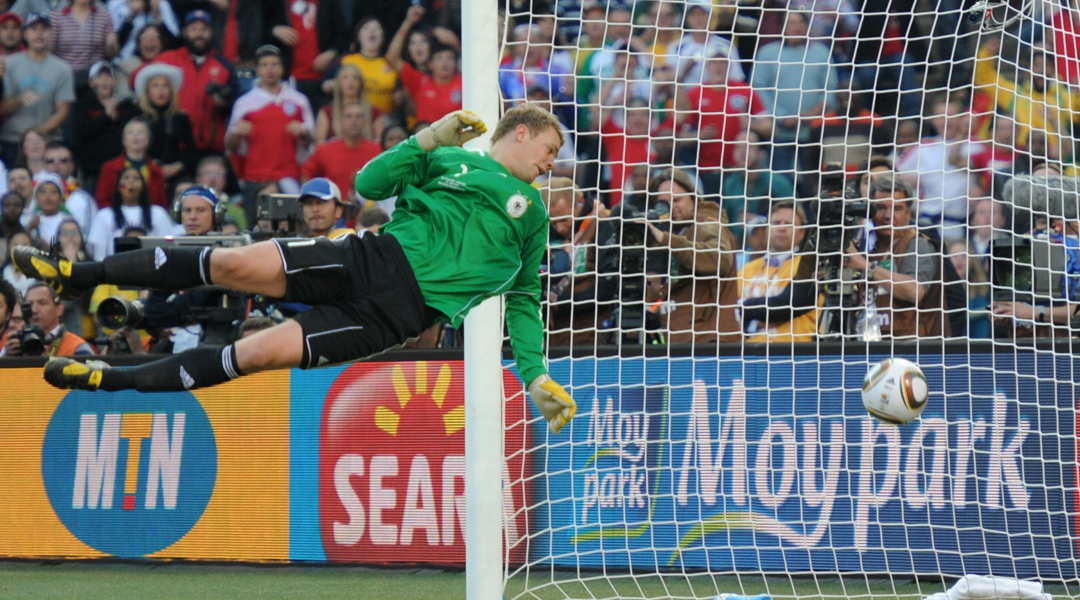
The inaugural World Cup was held in Uruguay in 1930, with 13 teams competing, none of which were England. The English FA had left FIFA two years previously in protest at other countries being allowed in, a stance they refused to soften for Italy 1934 or France 1938, refusing to recognise Uruguay or Italy as either world champions or proper countries and maintaining that only England could be considered the world’s premier football nation.
Following the end of the Second World War, the FA made their peace with FIFA, allowing England to enter the first post-war World Cup, in Brazil in 1950. They were expected to go far, but an overconfident side was defeated by Spain and, sensationally, the USA.
Aware that they would never better this result, the triumphant Americans didn’t play another game of football for 40 years, while the FA retrospectively argued that 1950 was just a practice tournament and shouldn’t really count. Meanwhile, England’s plan to avenge their honour by beating the Americans at basketball came to nought, though the story would be immortalised many years later in the acclaimed documentary, Space Jam.
In 1954, still smarting from the humiliation of Belo Horizonte, England successfully qualified for the knockout stages, only to be knocked out 4-2 by Uruguay. The Uruguayans had earlier beaten Scotland 7-0, however, so England could still claim to be champions of Britain, which everyone English agreed was just as good as being world champions, if not better.
It had by now been established that World Cup hosting duties should be shared between the twin football hotbeds of Europe and Latin America, so FIFA naturally followed a World Cup in Switzerland with one in Sweden. England had already booked flights to Argentina and they arrived in Stockholm late, underprepared and sunburned, to face a tough group.
Despite a heroic 0-0 draw against the Brazil of Pelé and Garrincha, neither of whom were playing, England crashed out in the first round, and faced a long journey home via Buenos Aires. 1958’s beaten finalists Sweden were managed by Englishman George Raynor, who was declared a winner by the FA in the spirit that everyone who took part should be considered a winner, especially if they were from England.
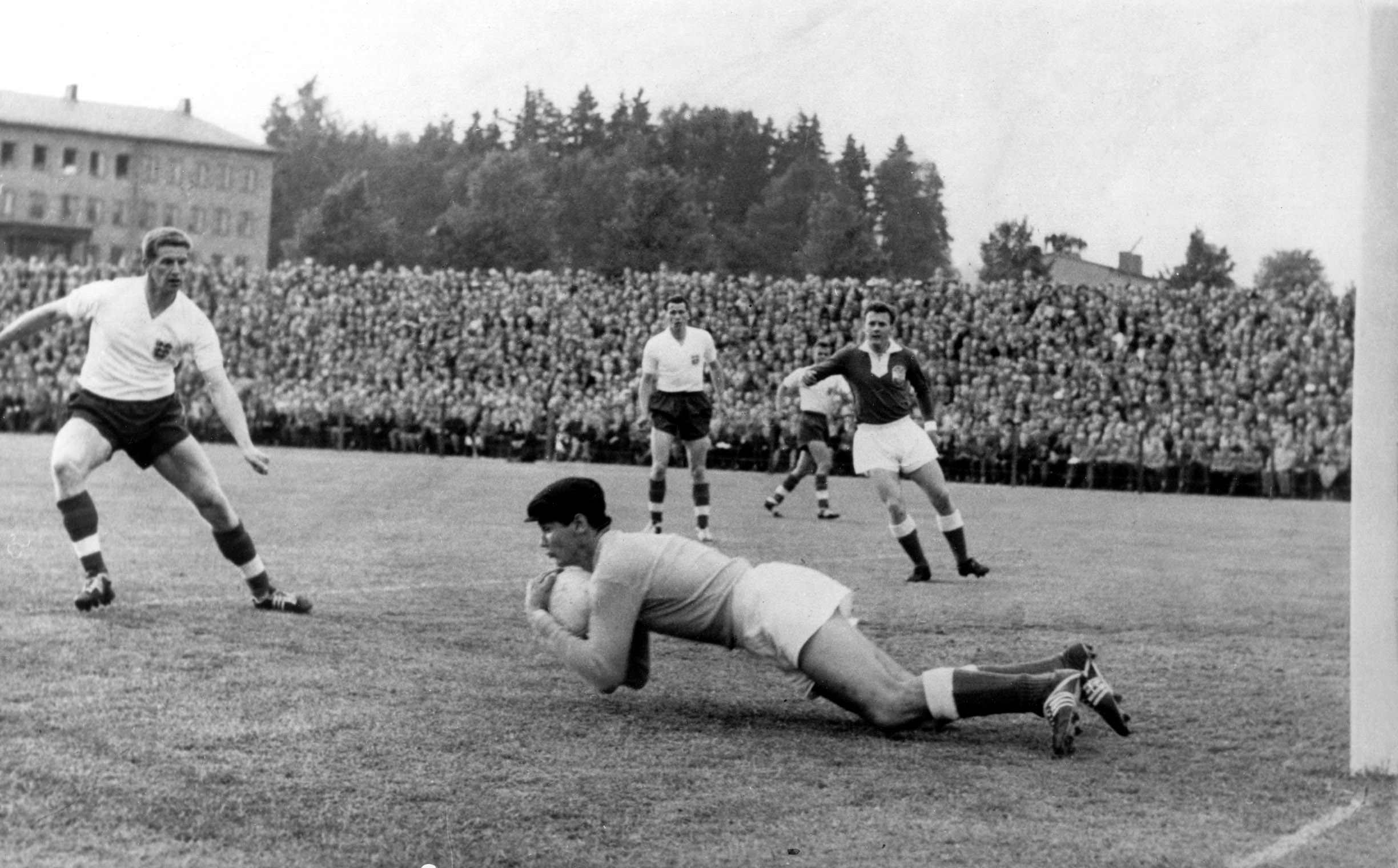
1962 saw the tournament return to the Americas in the shape of Chile, a country 3,000 miles long and 40 metres wide. The truncated pitches left England’s wingers at a distinct disadvantage, and a Garrincha-inspired Brazil dispatched them in the last eight, although Garrincha’s subsequent decline into alcoholism and early death meant that England were surely the moral victors, as the FA claimed.
Get FourFourTwo Newsletter
The best features, fun and footballing quizzes, straight to your inbox every week.
The experience of ’62 would be critical on home turf in 1966. Manager Alf Ramsey cunningly arranged for pitches to be extended well into the stands, allowing acres of space for his wide men to run into while leaving opposing defenders surrounded by hostile fans.
Buoyed by the home support, England breezed through the group stages before facing Argentina in an ill-tempered quarter-final, which saw many Argentinian players comment sarcastically on the English weather and make loud buzzing noises in front of Ramsey, who had a crippling phobia of wasps.
Defeat would have been unthinkable, not least because the country would have then been forced to cede the Isle of Wight to their opponents following a drunken bet by Prime Minister Harold Wilson. But a late Geoff Hurst goal was enough for England, who went on to beat Portugal in the last four to set up a Wembley final with West Germany.
The game finished 2-2 after 90 minutes, and then in extra time came the moment that would define English football forever: a Hurst shot hit the crossbar and bounced on the goal-line before being cleared.
After consultation with the Soviet linesman, the referee gave the goal. (Years later, when asked why he’d signalled that the ball was over the line, the linesman is alleged to have said, “because I thought it was over the line.”) The Germans crumpled, and Hurst added a fourth, immortalised by commentator Kenneth Wolstenhome, who famously said, “They imagine it to be concluded; now it’s concluded!”
As champions, England qualified automatically for Mexico 1970, thus avoiding a controversial military play-off like the one that saw El Salvador qualify at the expense of Honduras and 3,000 lives. Ramsey’s squad was strengthened by the selection of Alan Mullery in place of the Queen, who had been ceremonially included in every squad since 1954 (though she had played just once, against Bulgaria in 1962).
England and fellow favourites Brazil met in the group stages, resulting in a 1-0 win for the team of Gérson and Emerson Leão, neither of whom were playing, but both sides progressed to the knockout rounds.
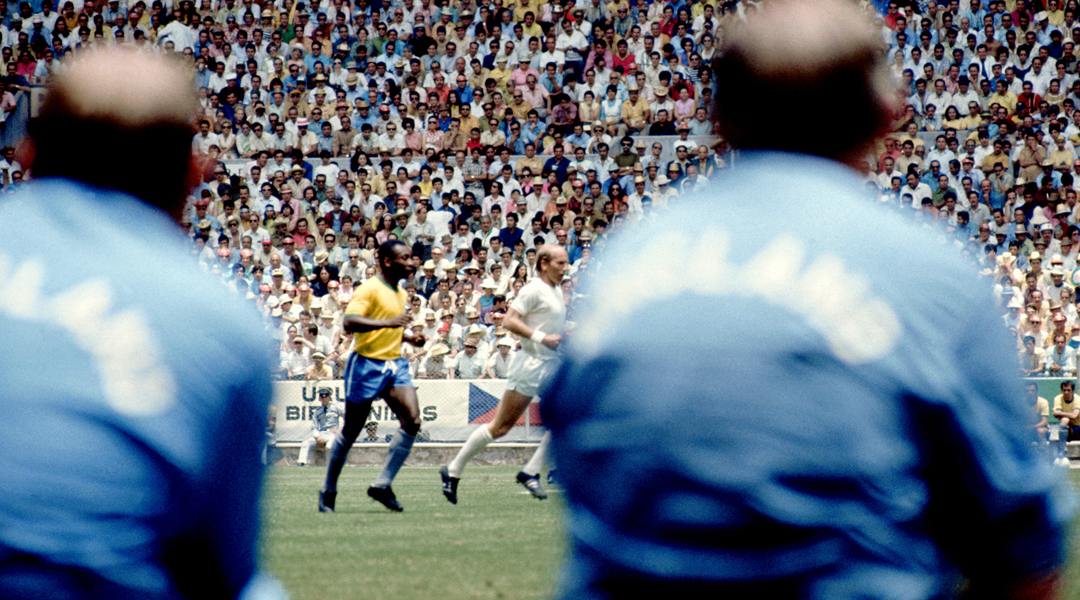
Lions being famously unable to cope with heat, the English wilted in their quarter-final against West Germany, and lost 3-2. Blame for the defeat was placed on goalkeeper Peter “the Cat” Bonetti, who had spent most of the match sitting in the box licking himself. Had Gordon Banks not missed the match with food poisoning, England would almost certainly have won, and so the team quite reasonably continued to call themselves world champions.
The next tournament would be held in West Germany, but England were not present. Needing a win against Poland to qualify, the English were so affronted by the Poles’ ungentlemanly refusal to let them score that they chose on point of principle to resign altogether from World Cup ‘74, and the next one, in Argentina. Both tournaments were won by the hosts, but few consider them authentic World Cups, much like 1994, and England’s status as champions was undisturbed.
England’s next finals appearance was therefore in 1982 in Spain. Ron Greenwood’s men stormed through their group, winning three games out of three, before coming up against a second group stage instead of the expected quarter-final, an experience Greenwood likened to leaving the Crystal Maze’s Aztec Zone and finding yourself in the Medieval Zone instead of the Ocean Zone.
Caught off-balance, the English were held to a draw by both Spain and West Germany, and were eliminated. Having ended the tournament undefeated, though, the FA declared England joint winners, and the squad returned home heroes.
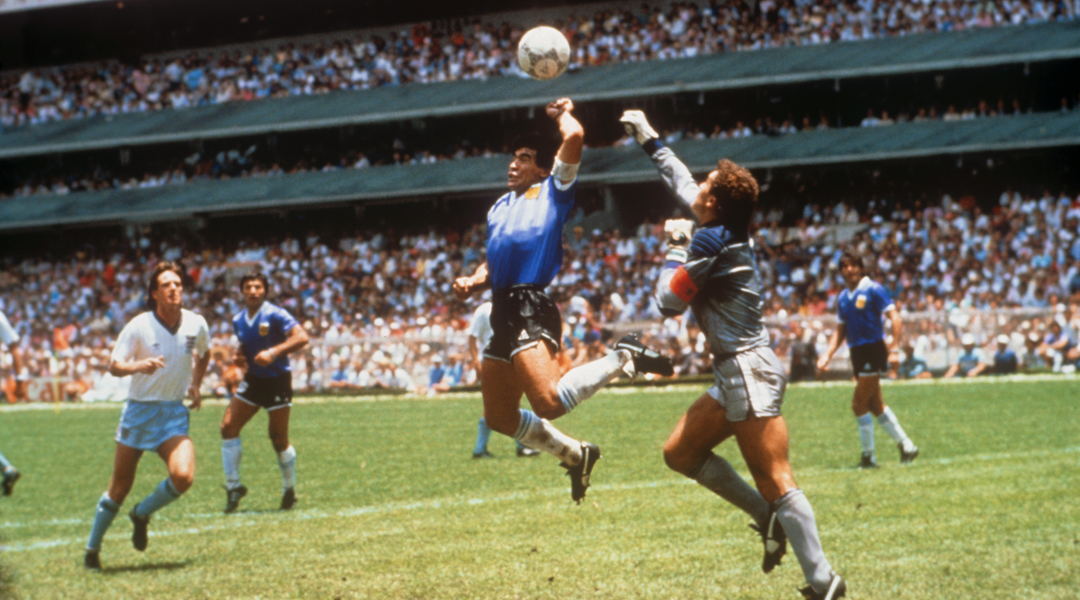
1986 saw the tournament return unexpectedly to Mexico, as original hosts Colombia had already committed to holding the Pan-American Cartel Feud Cup the same year, and most years since. England faced a politically charged clash with Argentina in the quarter-finals, a game that was decided by two disgraceful interventions by Diego Maradona.
After outraging English dignity with a handball goal, the swarthy blaggard scored a second after beating six England players with a technique known as ‘dribbling’, which the English rightly considered a form of cheating. Consequently the FA declared the result, and Argentina’s subsequent victory in the final, to be void, and England retained the trophy once again.
In 1990, Bobby Robson’s side defended their title in Italy. Inspired by Peter Shilton’s stirring rendition of Nessun Dorma, they swept past Egypt, Belgium and Cameroon, before being to a draw held over 120 minutes by West Germany.
English protests that penalties were no way to settle a football game were unheeded, despite Terry Butcher having already unholstered his duelling pistols, and the Germans scored all their kicks while Bobby’s boys missed two of theirs. Butcher shooting Olaf Thon afterwards was scant consolation, but the FA persuasively argued that penalties didn’t count and that England were therefore the real winners of the match, and indeed the tournament.
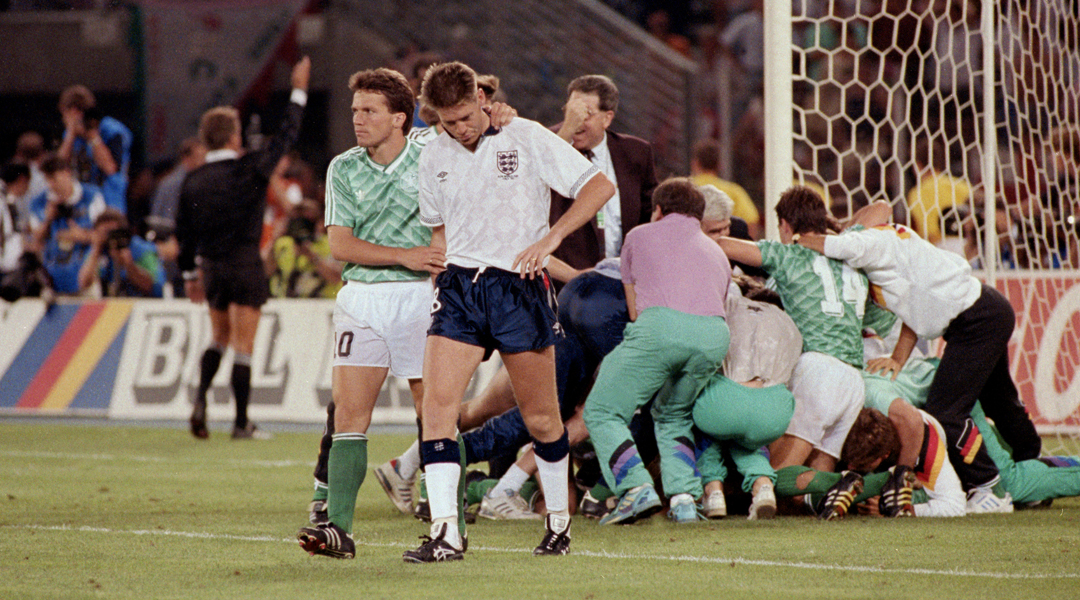
The 1994 World Cup was held in the USA, but the Football Association refused to take part, incensed that the film Four Weddings and a Funeral had featured American actress Andie MacDowell instead of their preferred choice, England’s Leslie Ash. Instead, England offered their place, their fans, and a number of their citizens to the Republic of Ireland, and looked ahead to France 1998.
England rolled over Tunisia and Colombia in the group stage to set up an intriguing rematch with the Argentina of Fernando Redondo and Hernàn Crespo, neither of whom were playing. The English got their revenge for previous Argentinian shenanigans when Michael Owen dived like a rocket-powered swan to win a penalty, but the game finished 2-2, and England were again beaten in the shootout lottery, despite allowing David Batty to buy their decisive ticket.
The FA won considerable praise for sticking to their principles regarding penalty shootouts, and the so-called defeat was stricken from the record and replaced with Le Tournoi De France in 1997, meaning that England were world champions once more.
In 2002, England dispatched historic rivals Argentina and Denmark, in payback for World Cup ‘98 and the Battle of Maldon in 991 respectively, to set up a meeting with Brazil. Selecão star Ronaldinho, who had earlier given his side the lead, then mistook Danny Mills for a pitch invader and was sent off for assaulting him.
Unsettled by their numerical superiority, England failed to capitalise and succumbed to a 2-1 defeat. The FA sportingly accepted that Ronaldinho’s long-range winner must have been an accident, and suggested that future results be shared, leading to England winning the trophy again after Brazil overcame Germany in the final.
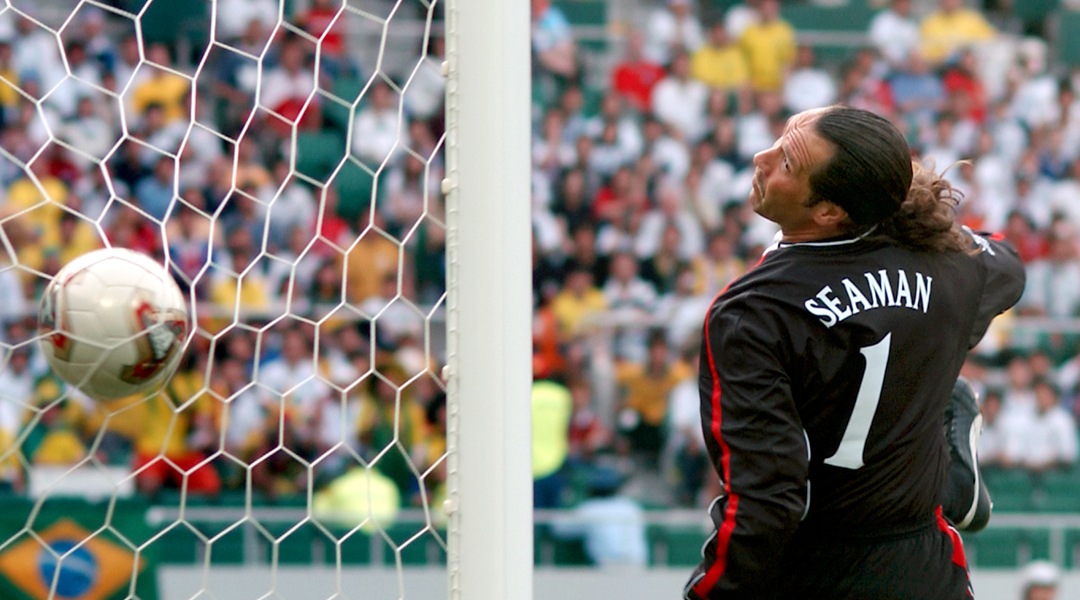
The Germans would host the 2006 edition, but unlike in 1974, a German World Cup was not befouled by England’s absence, at least until after the quarter finals. Sven’s men crashed out to Portugal, again on penalties, leading the FA to wonder whether FIFA had understood the rule that penalties did not count.
After the Portuguese failed to turn up for a replay the next day, England boycotted the remainder of the tournament. However, Lancashire-born Simone Perrotta was instrumental in winning the final for Italy, thus giving England yet another triumph for the FA’s record books.
England’s most recent World Cup adventure, in South Africa in 2010, also ended in glory. After the USA, Algeria and Slovenia were thrashed 1-1, 1-0 and 0-0 respectively, the Three Lions faced the Germany of Toni Kroos and Michael Ballack, neither of whom were playing.
With England trailing 2-1, a Frank Lampard goal was disallowed despite it having crossed the line. In protest, the English players, Gareth Barry in particular, allowed the Germans to walk in a third goal, and then, to hammer the point home, a fourth.
Had Lampard’s equaliser counted, there can be no doubt that England would have been victorious. The FA therefore decreed that every World Cup match that England would subsequently have played should be decided on the toss of a coin, and announced minutes later that the results were in, and England were again world champions, as they will remain for the next four weeks at least, and probably much, much longer.
